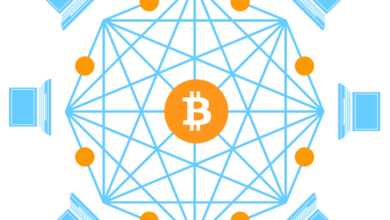Choosing a Free VPN: Here’s Why It’s Risky

Selecting a free Virtual Private Network (VPN) service can be tempting, especially when trying to save costs.
However, this decision carries significant risks, often undermining the very reasons for using a VPN: privacy, security, and unrestricted access.
This comprehensive guide delves into why opting for a free VPN can be a risky choice and what you need to be aware of.
The Hidden Costs of Free VPNs
While free VPNs don’t charge monetary fees, they often come with hidden costs that can compromise your online safety and privacy.
Compromised Security Features
- Inadequate Encryption: Even the best free VPNs can offer a weak encryption, making your data more vulnerable to hackers.
- Outdated Protocols: Many free VPNs use outdated protocols that are susceptible to breaches.
Data Logging and Privacy Risks
- Selling User Data: Free VPN providers often log and sell your browsing data to third parties, such as advertisers.
- Targeted Advertising: By analyzing your data, these services can bombard you with targeted ads, infringing on your browsing experience.
Malware and Security Threats
- Risk of Malware: Free VPNs have been known to contain malware, putting your device’s security at risk.
- Phishing Threats: Some free VPNs can be fronts for phishing operations, tricking users into revealing sensitive information.
Performance and Usability Issues
The performance of free VPNs often leaves much to be desired, impacting your internet experience.
Limited Bandwidth and Speed
- Bandwidth Restrictions: Free VPNs often have bandwidth limits, slowing down your internet speed significantly after you reach a certain quota.
- Speed Throttling: Even without a cap, these services usually provide slower speeds due to overcrowded servers.
Server Availability and Network Reliability
- Fewer Server Options: Limited server options can lead to network congestion, reducing reliability and speed.
- Frequent Disconnections: Unstable servers may lead to frequent VPN disconnections, disrupting your online activities.
Legal and Ethical Considerations
Using free VPNs can also have legal and ethical implications.
Questionable Legal Standing
- Jurisdictional Concerns: The legal jurisdiction of the VPN provider can affect how your data is handled and potentially accessed by authorities.
- Legal Compliance: Free VPNs might not adhere to global data protection laws, putting you at risk legally.
Ethical Implications
- Unethical Practices: The operational practices of some free VPNs, such as data selling and misleading advertising, raise ethical concerns.
The Long-Term Implications
The long-term implications of using a free VPN can be detrimental to your overall digital health and security.
Impact on Digital Footprint
- Persistent Data Logging: The persistent logging of your online activities can leave a long-term digital footprint, affecting your privacy.
- Reputation Risks: If a free VPN is compromised, it can lead to reputational damage, especially if sensitive information is leaked.
Security Over Time
- Evolving Threats: Free VPNs may not update their security features regularly, leaving users vulnerable to evolving cyber threats.
- Lack of Support: Typically, free VPNs offer little to no customer support, leaving users to deal with security issues on their own.
Conclusion
Choosing a free VPN can be a risky proposition, often resulting in compromised security, privacy risks, and a subpar internet experience.
The hidden costs associated with these services, such as data logging, exposure to malware, and limited performance capabilities, can far outweigh the benefits of free usage.
It’s crucial to weigh these risks against the potential short-term savings and consider more secure, reliable options.
Frequently Asked Questions – (FAQs)
Is it Ever Safe to Use a Free VPN?
While some free VPNs may be safer than others, they generally cannot match the security and privacy standards of paid services. If you must use a free VPN, thoroughly research its privacy policy and user reviews.
Can Free VPNs Sell My Data?
Yes, many free VPNs generate revenue by collecting and selling user data to third-party advertisers or other entities, which is a significant privacy concern.
Are There Any Secure Free VPN Options?
Some reputable VPN services offer limited free versions of their paid products. These are usually more secure than entirely free VPNs but come with restrictions like data caps and fewer server choices.
How Do Free VPNs Compare to Paid VPNs?
Paid VPNs typically provide stronger encryption, more server choices, faster speeds, and a firmer commitment to user privacy compared to free VPNs. They also regularly update their services to combat the latest cyber threats and offer customer support.
What Are the Alternatives to Using a Free VPN?
If a free VPN doesn’t meet your needs, consider a paid VPN service for enhanced security and performance. Look for providers with strong encryption standards, strict no-logs policies, and robust customer support to ensure a secure and smooth online experience.




